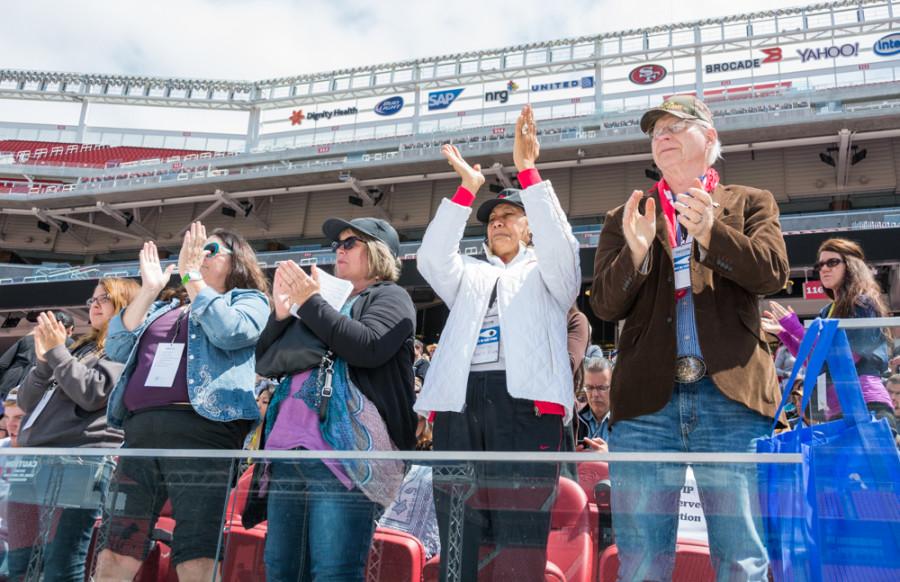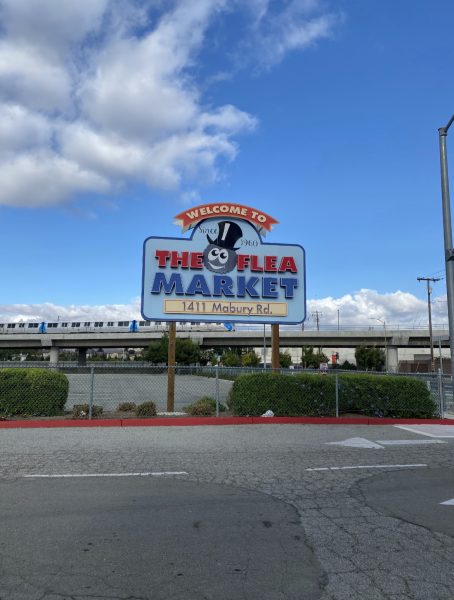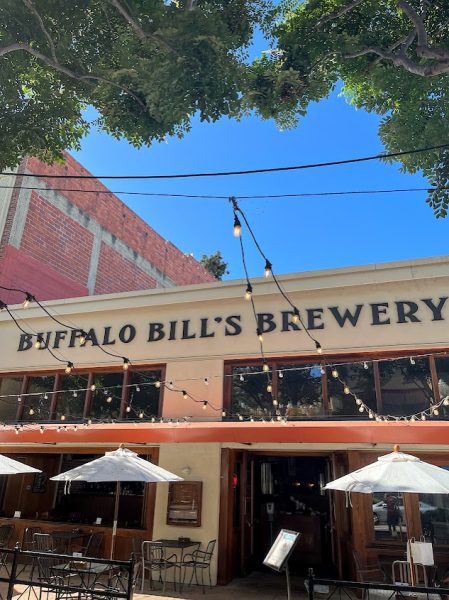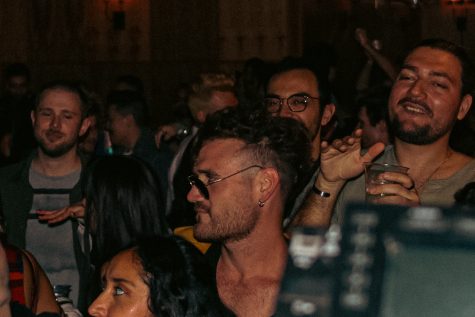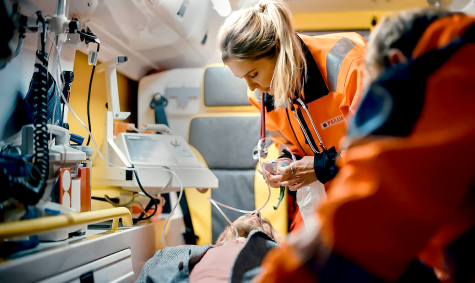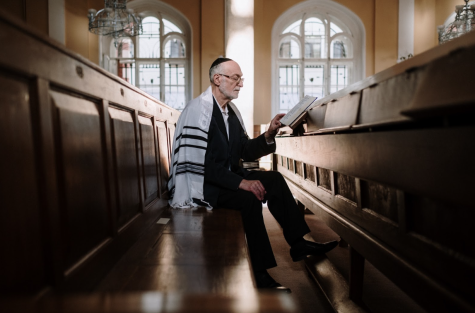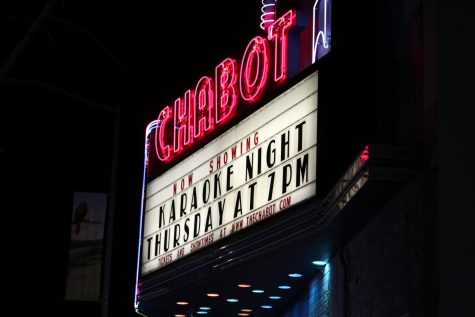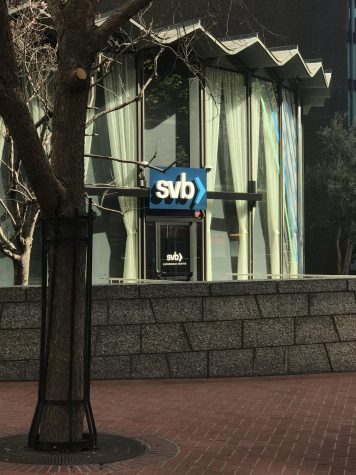Bay Area rallies against human trafficking
PHOTO BY TAM DUONG JR./THE PIONEER
Event attendees applaud during the Freedom Summit, Saturday at Levi’s Stadium.
May 13, 2015
More than 1,500 people from all over the Bay Area filled Santa Clara’s Levi’s Stadium in the Brocade Club last Saturday for an anti-human trafficking event.
The Freedom Summit – dubbed “Not in our Town” – organized by Bay Area Anti-Trafficking Coalition had more than 50 local non-profit organizations at the event, each with the same goal: to raise awareness about human trafficking in the Bay Area.
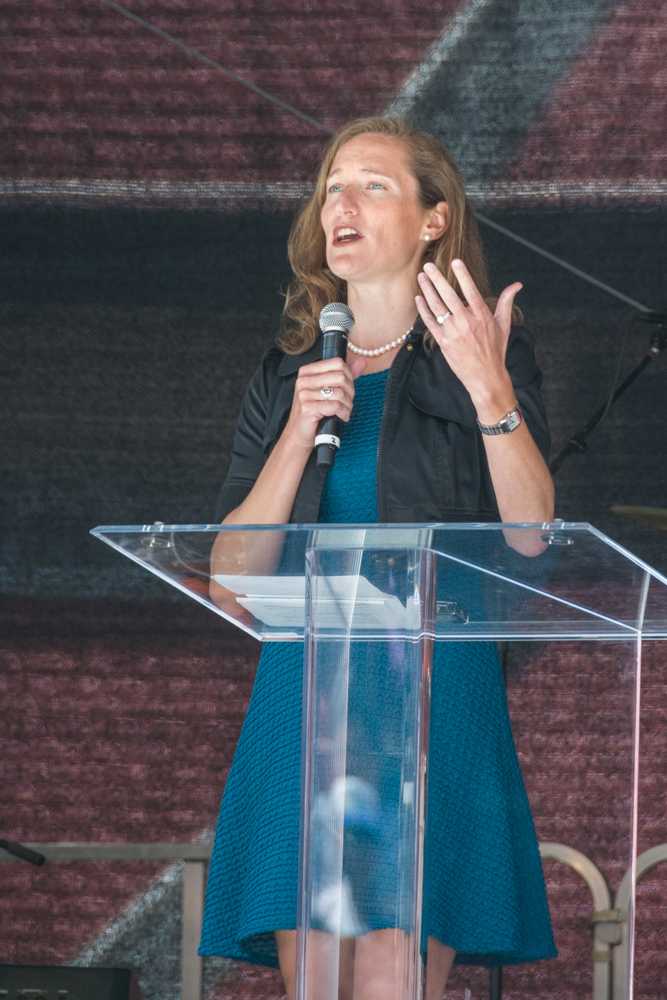
Event organizer Betty Ann Boeving speaks about the Freedom Summit on Saturday at Levi’s Stadium.
“We will not tolerate human trafficking in our town,” said Congresswoman Jackie Speier. “By being here today, you are fighting against one of the greatest evils of our time.”
The event also aimed to bring awareness to the amount of human trafficking that can occur during large sporting events like the Super Bowl. Betty Ann Boeving, Founder and Executive Director of BAATC, explained that local authorities have started to train over 7,000 volunteers in the Bay Area for the Super Bowl to keep a look out for any suspicious activity in regards to trafficking.
Brad Myles, Chief executive officer for the Polaris Project — an organization that runs the call centers for the National Human trafficking hotline — explained that this is the first time that an event of this size for a Super Bowl has happened nine months before the game.

…A young woman who has been sex trafficked, often has to fill a quota by her trafficker, she will need to find roughly 10 to 15 buyers a night, meaning that within a year that girl would be raped by approximately 6,000 buyers.
— Brooke Axtell
Twenty speakers from different organizations spoke about their ties to human trafficking including organization leaders, survivors and law enforcement.
Speaker Brooke Axtell, a survivor of sex trafficking and Director of Communications and Engagement for Allies Against Slavery, left event attendees in tears as she shared statistics about child sex trafficking in the United States. Axtell explained that 55% of child pornography is from the United States and that one of five pornographic videos online consists of child pornography.
“People always ask me, ‘How can this happen here?’ and I always respond, ‘How can this not?’ said Axtell. “This is our culture. We live in a culture where profits are more important than people. The first step in human trafficking is dehumanizing the person, turning the child into an object.”
Half of all sex trafficking victims are children because at a young age children are more vulnerable and traffickers prey on vulnerability, explained Axtell.
She said that a young woman who has been sex trafficked, often have to fill a quota by her trafficker, she will need to find roughly 10 to 15 buyers a night, meaning that within a year that girl would be raped by approximately 6,000 buyers.
Axtell ended with a call to action, she pleaded with the crowd to know what is happening in each community in regards to this issue, and then identify local anti-trafficking efforts and see how you can support them and finally build relationships with survivors.
“Remember, that no trauma is beyond the transformative healing of love,” Axtell said as the crowd erupted in applause.
Many types of human trafficking that were acknowledged at the Freedom Summit. Myles clarified that in California, besides sex trafficking, the most common type of trafficking is labor trafficking. He described that in the last year, the National Human Trafficking Hotline received over 3,500 calls about people being trafficked in California.

Poralis Project Executive Officer Brad Myles discusses different types of human trafficking at Levi’s Stadium.
The majority of them are in regards to labor workers who work against their will at hotels, restaurants, salons and even the men and women you might pass selling fruits and vegetables on the corner of busy streets.
“Is human trafficking decreasing? No,” said Myles. “So how do we get beyond this point? We need to stop looking at human trafficking generally and start looking at specific types of trafficking in the world.
By creating these subgroups, we can start eradicating a different type of trafficking in each area of the United States.”
Throughout the day event attendees could listen to the many speakers, or visit different organization’s tables that were located through the Brocade Club. Local organizations like Ruby’s Place, a Hayward organization, Love Never Fails, an organization that works in Oakland and H.E.A.T. Watch, a program created by the Alameda County District Attorney offices that combats human trafficking in Alameda County all had a table at the event.




